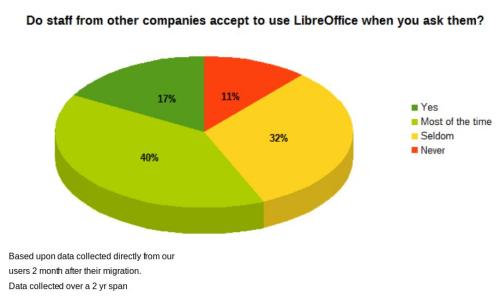All Posts
The future of ODF, XML and office suites in Public Administrations
Last week I attended the Paris Open Source Summit, were I saw things as interesting and diverse as autonomous tractors, Open Source legal support and “degooglized Internet” visions. Please read that other post to know more. Here, I am only going to describe one other moment of POSS 2016, about two other arguments I care a lot about, and on which I wouldn’t mind working again, even if these days I am mostly busy with Digital DIY.
Pesaro, Microsoft and OpenOffice: the consequences
A few days ago I summarized the most questionable or uncertain points of the software odissey of the City of Pesaro, saying that I’d also post questions and consequences, both for the City and Open Source advocates, not mentioned yet in this story. For Pesaro, the road forward has little or nothing to do with the initial topic, that is Open Source Software in Public Administration. The advocates, instead, should rethink some of their strategies. Let’s start from Pesaro, but what follows applies to practically every city.
The correct way to use and advocate OO.o and the real reason to do it
(this is something I wrote in 2007. Everywhere you read “OO.o” you can (and should) replace it with “Apache OpenOffice or Libre Office”. See the bottom of the page for the origin and history of the text)
Many people, schools and small businesses use OO.o only because
The actual advantages of OpenDocument
(this is only the final part of something I wrote in 2007. Please do read the first part to understand where the text below comes from!)
A highly structured, metadata rich, application independent XML file format like OpenDocument can finally offer two huge advantages
The importance of Document Freedom Day explained by Microsoft job offer
March 31st, 2010, is “Document Freedom Day (DFD), a global day for document liberation”. Local events have been organized all over the world to “educate the public about the importance of Free Document Formats and Open Standards in general”.
